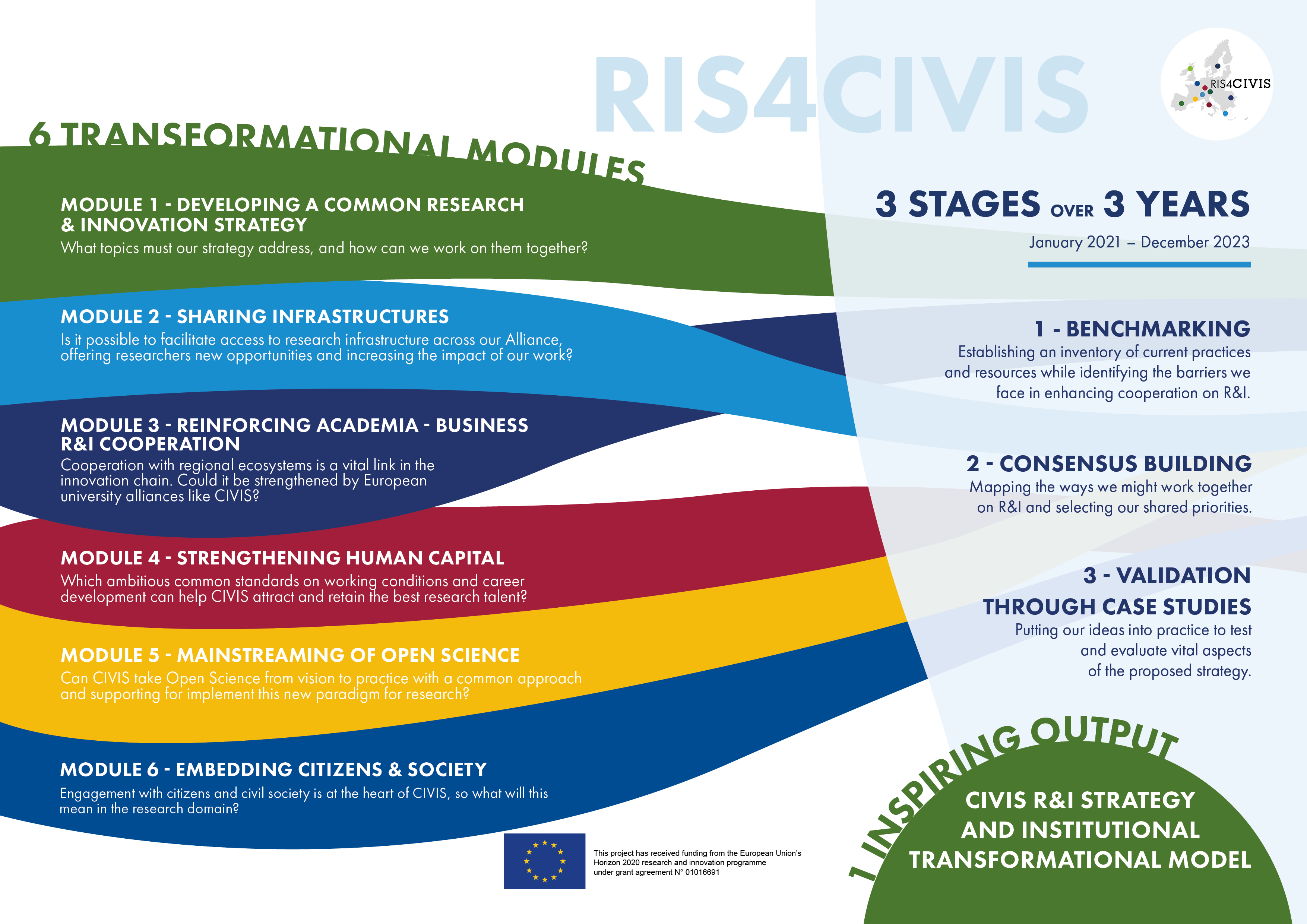RIS4CIVIS enters its busiest phase as case studies explore the future of research and innovation
RIS4CIVIS, our project to develop a research and innovation strategy for the CIVIS Alliance, is now in its perhaps most productive phase: “Validation through Case Studies”. Each of the six modules is now testing and implementing the case studies that were formulated and decided on in the consensus-building phase. The case studies offer immediate benefits and opportunities for researchers in our member universities, but they mainly serve as a testing ground for the co-creation of our future strategy for cross-border research collaboration.
The first stages of this work started in April 2022 with a kick-off meeting held in Brussels when module leaders, management team and work package leaders met in person for the first time. While some modules started working on their cases already in the Spring-Summer of 2022, the real work for all modules kicked off in the Fall, with an intense work week in Stockholm, and it is now, in early Spring, coming into full bloom with lots of in-module activities, as well as cross-module activities. As the work has progressed, some initial case studies have been toned down, whereas others, new ones, have been added. This shows how very organic, productive, collaborative and process-driven the work is within (and between) the six modules.

From the outset some modules decided on doing just one or two case studies, such as:
- Module 1: building a joint database that helps facilitate contacts and collaborations between researchers and research teams within the Alliance.
- Module 2: creating an IT database that includes more than 170 research infrastructures and in connection to this database, create an interactive online platform.
- Module 3: defining an innovation strategy and building a start-up environment.
Module 4, Module 5 and Module 6 would opt for doing several inter-connected case studies (up to six cases). As the work has progressed, several modules have also been able to find relevant and productive synergies, and several cross-module activities have been developed and implemented. This is the case for modules 3 and 4 (start-up trainings), as well as 4, 5 and 6 (training programmes for career development; setting criteria of research assessment forms and/or and create awards in relation to Open Science and Citizen Science).
Out of the six modules, Module 2 (“Sharing Infrastructures”) is almost done with their cases: the database and the online platform are to be launched very soon. Meanwhile, Module 4 (“Strengthening Human Capital”) is still involved in testing and implementing cases, but they have come far in regards to the training programs that they have offered, and they have decided to add additional trainings in the Spring, including one on gender and one on sustainability, as well as a CIVIS BIP on science communication for junior scholars.
Once all the case studies are implemented and there are some final results, they are to be evaluated in relation to their methodologies (i.e. the processes of implementing and testing them). This evaluation – which is a validation of the roadmaps including a set of recommendations and a cost benefit analysis – will be formulated in a module report in the Summer of 2023 and each of the six reports will be compiled into one singular report that will be finalised in September 2023.
